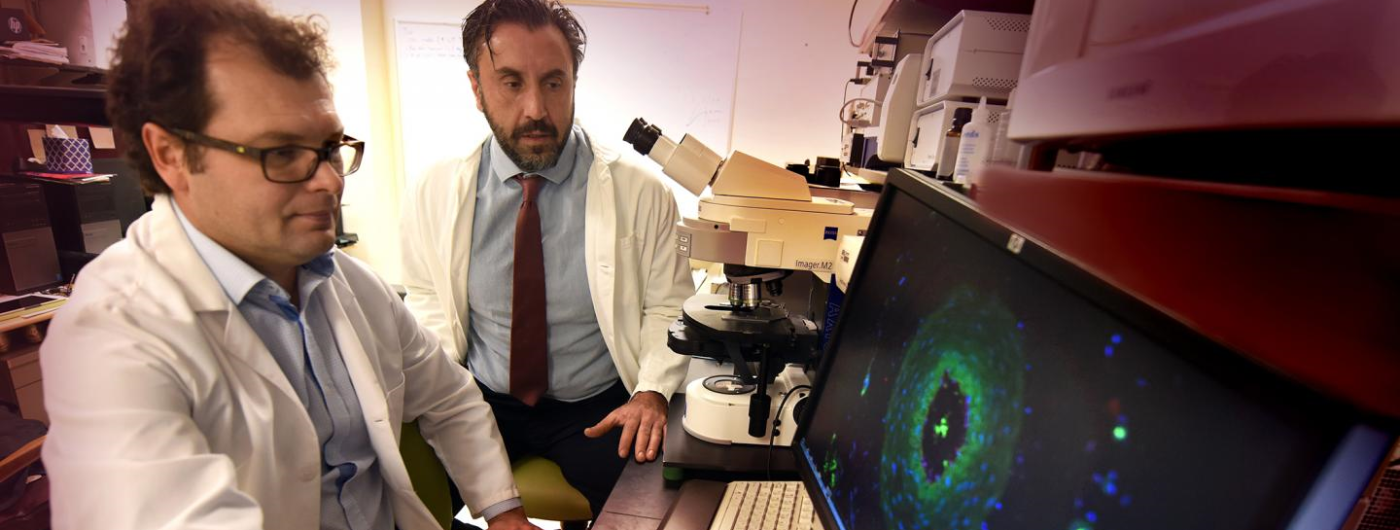
- Augusta University
- Colleges & Schools
- Medical College of Georgia
- Pharmacology & Toxicology
- Message from the Chair
Message from the Chair
The disciplines of pharmacology and toxicology are devoted to determining how drugs and other chemical substances affect biological processes in living organisms. Among the life sciences, it can be argued that Pharmacology and Toxicology are among the most integrative, multidisciplinary, and rapidly evolving disciplines. To address pharmacology and toxicology-related research questions scientists employ techniques ranging from molecular and genetic approaches to cell culture to isolated tissue systems to whole animal and human studies. As a profession, many pharmacologists and toxicologists pursue successful careers in traditional academic settings, while others conduct research or hold administrative positions in government laboratories (e.g., NIH) or regulatory agencies (e.g., FDA, EPA), or they are employed by private research foundations or pharmaceutical companies. Even within academia, pharmacologists and toxicologists are found in medical, osteopathic, dental, pharmacy, nursing, as well as veterinary schools.
Our department, first established in 1943 has enjoyed a long record of accomplishments in scientific discovery and training new generations of research scientists and medical professionals. Current faculty members in our department are nationally and internationally recognized experts in cardiovascular disease and neuroscience. Cardiovascular disease-related areas of interest in the department include heart failure, ischemia/reperfusion injury, systemic and pulmonary hypertension, hemorrhagic shock, and diabetes. Neuroscience-related areas of interest include Alzheimer’s disease, Schizophrenia, PTSD, ADHD, intracerebral hemorrhage, environmental neurotoxicology, and drug discovery. Our faculty members have a diversified portfolio of research funding from multiple institutes of the NIH, the Department of Defense, the US Department of Veterans Affairs, the American Heart Association, and the pharmaceutical industry.
We offer a rigorous interdisciplinary training environment for graduate students and postdoctoral fellows as well as medical students and undergraduates who wish to pursue research projects. The department has a robust seminar program with invited speakers who are both nationally and internationally recognized for their contributions to the fields of pharmacology and toxicology. Graduate students participate in research symposia and compete for a variety of awards that are offered through the department annually.
Mission Statement
The Mission of the Department of Pharmacology and Toxicology is threefold:
- To train the next generation of successful basic research scientists and physician scholars by offering a broad educational experience in pharmacology and toxicology that balances an emphasis on theoretical and practical aspects (e.g., clinical relevance) of basic research findings with other key competencies (critical thinking skills, writing skills, speaking, and teaching ability, presentation skills, etc.).
- To contribute basic and translational research that is recognized internationally for its excellence and contributions to the field of pharmacology and toxicology.
- To further serve the public via participation in departmental and university-level committee and governance as well as provide leadership in national and international scientific and professional societies.
